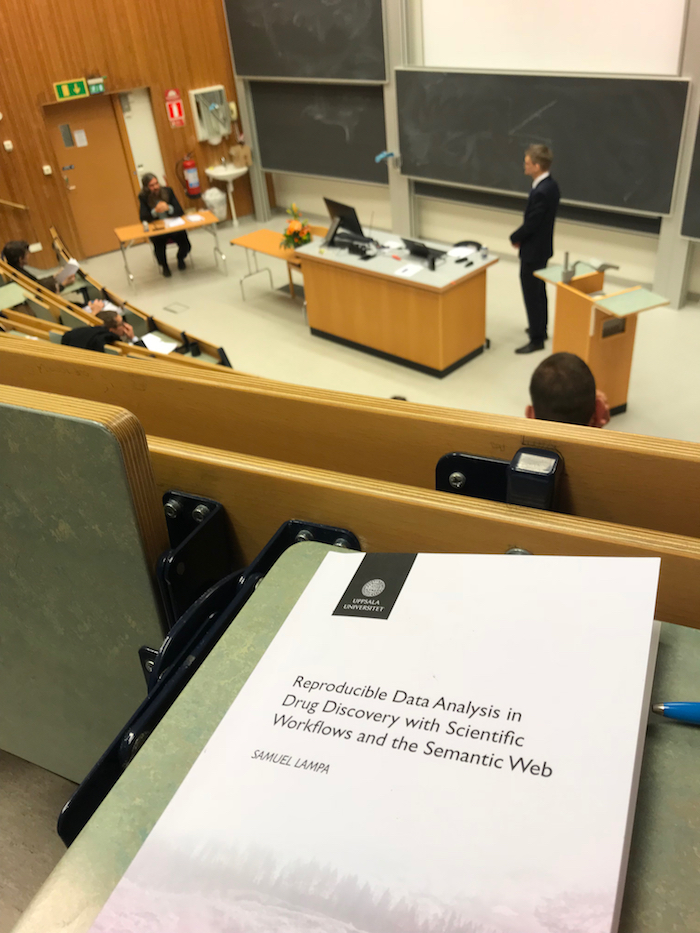Samuel Lampa successfully defended his PhD thesis: Reproducible Data Analysis in Drug Discovery with Scientific Workflows and the Semantic Web
28 Sep, 2018
 Today, Samuel Lampa from the group successfully defended his thesis, titled:
Today, Samuel Lampa from the group successfully defended his thesis, titled:
“Reproducible Data Analysis in Drug Discovery with Scientific Workflows and the Semantic Web“
CONGRATULATIONS SAMUEL!

- Supervisor: Assoc Prof. Ola Spjuth, Uppsala University
- Co-supervisor: Prof. Roland Grafström, Karolinska Institutet
Thesis abstract
The pharmaceutical industry is facing a research and development productivity crisis. At the same time we have access to more biological data than ever from recent advancements in high-throughput experimental methods. One suggested explanation for this apparent paradox has been that a crisis in reproducibility has affected also the reliability of datasets providing the basis for drug development. Advanced computing infrastructures can to some extent aid in this situation but also come with their own challenges, including increased technical debt and opaqueness from the many layers of technology required to perform computations and manage data. In this thesis, a number of approaches and methods for dealing with data and computations in early drug discovery in a reproducible way are developed. This has been done while striving for a high level of simplicity in their implementations, to improve understandability of the research done using them. Based on identified problems with existing tools, two workflow tools have been developed with the aim to make writing complex workflows particularly in predictive modelling more agile and flexible. One of the tools is based on the Luigi workflow framework, while the other is written from scratch in the Go language. We have applied these tools on predictive modelling problems in early drug discovery to create reproducible workflows for building predictive models, including for prediction of off-target binding in drug discovery. We have also developed a set of practical tools for working with linked data in a collaborative way, and publishing large-scale datasets in a semantic, machine-readable format on the web. These tools were applied on demonstrator use cases, and used for publishing large-scale chemical data. It is our hope that the developed tools and approaches will contribute towards practical, reproducible and understandable handling of data and computations in early drug discovery.
Faculty Opponent
- Dr. Carl Nettelblad, Department of Information Technology, Uppsala University
Examination committee
- Dr. Pär Matsson, Department of Pharmacy, Uppsala University. (Chair of the thesis ceremony.)
- Dr. Manfred Grabherr, Department of Medical Biochemistry and Microbiology, Uppsala University
- Dr. Mikael Huss, Peltarion and Department of Learning, Informatics, Management and Ethics, Karolinska Institutet

